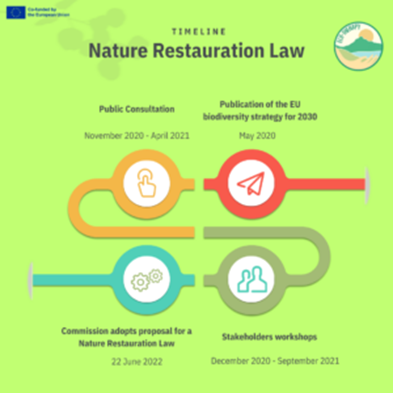The European Commission has put forth a groundbreaking proposal aimed at restoring ecosystems to benefit people, the climate, and the planet at large.

With over 80% of habitats currently in a state of decline, the urgency to act is paramount. Restoring wetlands, rivers, forests, grasslands, marine ecosystems, and the diverse species they support is crucial. Such restoration efforts promise a myriad of benefits, including bolstering biodiversity, safeguarding essential ecological services such as water and air purification, crop pollination, and flood prevention.
Moreover, these actions align with the vital goal of limiting global warming to 1.5°C, while simultaneously fortifying Europe’s resilience and strategic independence. By taking proactive measures, we can mitigate the risk of natural disasters and safeguard food security.
The proposal outlines a comprehensive objective to restore nature across the European Union’s (EU) land and sea regions, coupled with mandatory restoration targets for specific habitats and species. The aim is to encompass at least 20% of the EU’s land and sea areas by 2030, with the ultimate goal of restoring all ecosystems in need by 2050.
Within two years of the Regulation’s enforcement, EU member states are expected to submit National Restoration Plans to the Commission, detailing their strategies for achieving these targets. They will also be tasked with monitoring and reporting their progress. The European Environment Agency will produce regular technical reports to assess progress towards the targets, while the Commission will provide updates on the implementation of the Nature Restoration Law to both the European Parliament and the Council.
This initiative underscores a fundamental truth: the preservation of nature is essential for the effective practice of ecotherapy. By protecting and restoring our natural ecosystems, we pave the way for holistic healing and well-being.
For more information, visit: European Commission’s Nature Restoration Law page.

